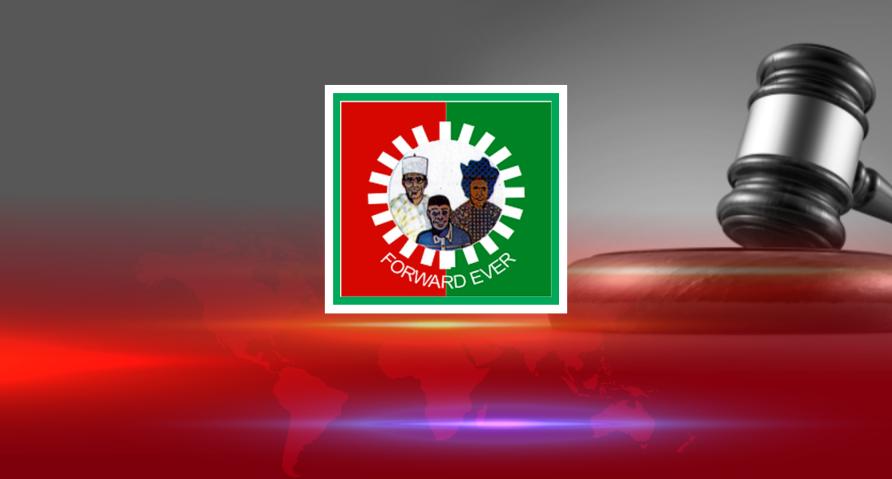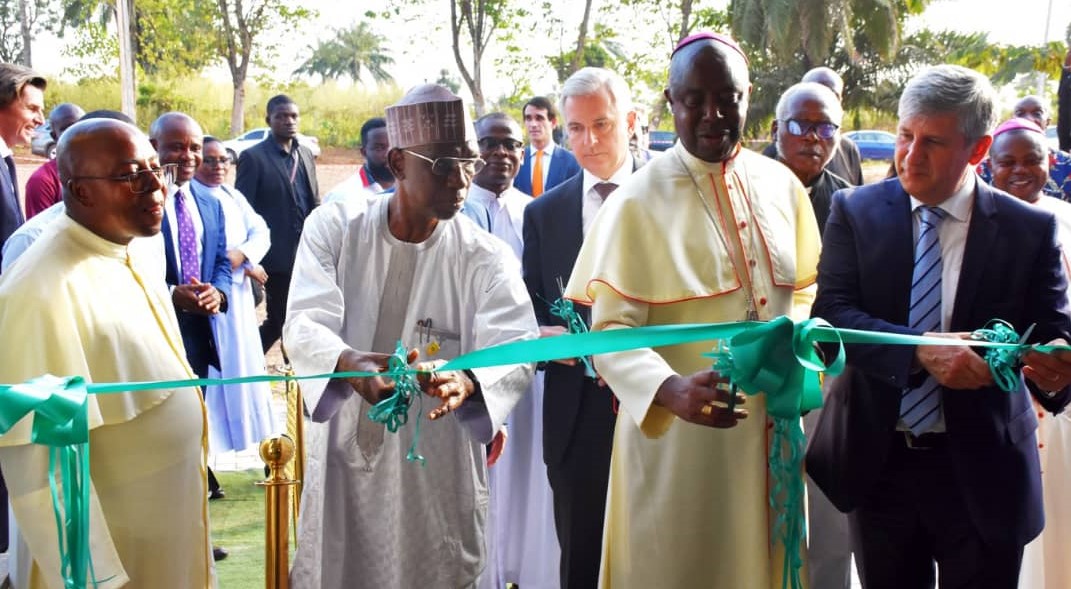It is no longer news that the Labour Party (LP), which millions of Nigerians are increasingly embracing as their last hope for the political and socio-economic redemption of Africa’s most populous country, has lately become the target of attacks by corrupt and retrogressive elements. Recently, one Odengene who was the plaintiff in the above referenced suit alleged that the Labour Party did not notify him of the conduct of its governorship primary election in Enugu state on 4 August 2022, and consequently approached the court to challenge the exercise before justice N. E. Maha of the Abuja division of the federal high court with an originating summons.
In opposition to the originating summons, the Labour Party filed an application questioning the plaintiff’s locus standi to challenge the conduct of the primary election in court on the clear ground that the plaintiff by his own express admission, did not participate in the exercise. A plethora of judicial authorities, including Emenike v. PDP (2012) NWLR (pt. 1315) 573; Daniel v. INEC (2015) 9 NWLR (pt. 1463) 155; and the more recent UBA v. Ozigbo (2022) 10 NWLR (pt. 1839) 431 were cited before Justice N. E. Maha in support of the application, and to demonstrate to the court that Odengene, the plaintiff, had no locus standi in the matter because he did not participate in the primary election.
The facts of Odengene’s case are almost on all fours with the facts in Daniel v. INEC & Ors (2015) 9 NWLR (pt.1453) p.155 where the supreme court copiously relied on its decision in Emenike v. PDP, supra, the facts of which are exactly the same as in Odengene’s case. In Daniel v. INEC, supra, the court stated that:
“Locus standi denotes the legal capacity to institute proceedings in court. It is a threshold issue that goes to the root of the suit. On no account should the merits of the case be considered before locus standi is decided. Locus standi affects the jurisdiction of the court. Consequently if the plaintiff does not have locus standi to institute the suit the court would have no jurisdiction to entertain the suit. Usually it is the plaintiff that is questioned as to [ascertain] whether he has locus standi. See: Nurses Association v. A. G. (1981) 11 – 12 SC p.1; Thomas v. Olufosoye (1989) 1 NWLR (pt. 18) p.669; Pacers Multi – Dynamics Ltd v. MVD Dancing Sisters & Anor (2012) 1 SC (pt.1) p. 75.
Does the appellant have locus standi?
The majority decision of the court of appeal is that the appellant has locus standi. The court said: “The logical conclusion that can be deduced from the circumstances of this case clearly, is that even though primary election of 9 January, 2011 was nullified only the results were nullified while the process that led to the nomination of candidates was left intact. I am therefore of the humble view that those who participated in the primaries and cleared for the primary election of 9 January, 2011 were automatically participants and ipso facto aspirants for the re-run of the primary election. The appellant, therefore, had the locus standi to challenge the conduct of the election.”
The appellant’s amended originating summons questions the conduct of the re-run of PDP primaries held on 15 January 2011.
Who can question conduct of primaries?
Section 87 (9) of the Electoral Act answers the question. It reads:
“87(9) Notwithstanding the provisions of this Act or any rules of a political party, an aspirant who complains that any of the provisions of this Act and the guidelines of a political party has not been complied with in the selection or nomination of a candidate of a political party for election may apply to the federal high court or the high court of a state or FCT, for redress.”
This court has interpreted the above section in the recent decision of sylva & 2 Ors v. PDP (2012) 13 NWLR (pt.1316) p. 85. I said that:
“… Section 87 (9) of the Electoral Act confers jurisdiction on the court to hear complaints from a candidate who participated at his party’s primaries and complains about the conduct of the primaries…..”
In Lado v. CPC (2011) 18 NWLR (pt.1279) p.689, Onoghen, JSC said that:
“… Section 87 of the Electoral Act, 2010, as amended deals with the procedure needed for the nomination of candidate by a political party for any election and specifically provided a remedy for an aggrieved aspirant who participated at the party primaries which produced the winner by the highest number of votes.”
Also in Emenike v. PDP & Ors (2012) 12 NWLR (pt.1315) p.573, Fabiyi, JSC said:
“… that for a complaint to come within the narrow compass of Section 87(4), (6) and 87(9) of the Electoral Act and be cognizable by a court, the aspirant must show clearly and without any equivocation that the national executive committee of the political party conducted a primary election in which he was an aspirant and that the election was conducted in breach of specified provisions of the Electoral Act/Electoral Guidelines.”
Can the appellant benefit from Section 87 (9) or did the appellant participate in the re-run of the PDP held on 15/1/11?
In his affidavit filed in support of his amended originating summons the appellant deposed in paragraphs 26 and 30 as follows:
“26. That in response, I informed Mr. Akpabio Udo Ukpa that I was not aware and did not participate in the re-run election.
- That because of their refusal to inform me, I could not attend the re-run neither did any of my supporters, as we became aware after it had been done.”
An admission, clearly and unequivocally made is the best evidence against the person making it. Paragraphs 26 and 30 are conclusive evidence that the appellant did not participate in the re-run primaries conducted by PDP on 15th January, 2011. They are clear admissions by the appellant. Since the appellant did not participate in the re-run primaries, there was no way he could complain about the conduct of the primaries, and so had no locus standi to institute an action as provided by Section 87 (9) of the Electoral Act. Put in another way, before a candidate for the primaries can have the locus standi to sue on the conduct of the primaries he must be screened, cleared by his political party and participate at the said primaries. Anything short of that, the candidate who did not participate in the primaries could conveniently be classified as a meddlesome interloper with no real interest in the primaries. The court of appeal to my mind was wrong. The appellant has no locus standi to institute this suit because he did not participate in the re-run primaries.
Notwithstanding his irreconcilable pleadings and his outlandish claims the appellant remains doggedly resolute, and undeterred in proceeding with this appeal which is dismally devoid of any merit whatsoever. The appeal is dismissed with no order on costs. The cross appeal is allowed.”
The doctrine of judicial precedent otherwise known as stare decisis demands that lower courts must strictly adhere to the decisions of higher courts. They cannot refuse to be bound by the decisions of higher courts even if those decisions were reached per incuriam. The implication is that a lower court is bound by the decision of a higher court even where that decision was given erroneously. See Dalhatu v. Turaki & ors. (2003) 15 NWLR (pt. 843) 310. The whole essence of judicial precedent is that it makes for certainty in the law and prevents arbitrariness and capriciousness in decision making. See A. G. Lagos State v. Eko Hotels Ltd (2018) 7 NWLR (pt. 1619) 318.
Instead of considering the decisions of the supreme court in the cases cited before her, including Emenike v. INEC, supra, and accepting to be bound by them, justice N. E. Maha deliberately ignored them and dismissed the application challenging Odengene’s locus standi. The Judge did not consider Emenike’s case at all in her judgment but rather made a feeble attempt to distinguish the facts of UBA v. Ozigbo, supra, from those of Odengene’s case. Justice N. E. Maha deliberately rejected the ratio decidendi in Ozigbo’s case, and to be bound by the doctrine of stare decisis. The judge failed to realise that no two cases are ever the same.
In Abubakar v. Dauda (2020) LPELR – 61417 (CA), the court of appeal per Kalio, JCA, has this to say:
“I wish to make a little contribution on the duty of courts in relation to the decisions of courts higher in hierarchy. One of the grounds of appeal in this matter is that the lower court refused to abide by the decisions of higher courts. This should not be so. The doctrine of stare decisis is critical to the law and it is not to be treated with levity by any judge as it remains a cornerstone for the maintenance of the rule of law. Judicial precedent is a safeguard against arbitrariness and capriciousness in decision making and makes for certainty of the law…. It is a form of judicial rascality for a Judge to deliberately refuse to consider the decision of a higher court cited before him.”
Now that Odengene’s case is on appeal, it is hoped that the court of appeal will be guided by the doctrine of stare decisis, and follow the established principles of law as settled in a long line of the supreme court’s decisions, including those mentioned hereinabove. The law is settled as to who has the locus standi to challenge the conduct of the primary election of a political party, and the likes of Justice Maha should not be allowed to upset the law in that regard.
Add a comment






